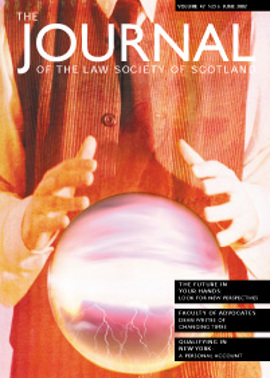Book reviews
This constant motion has probably made its own contribution to the extraordinarily high quality of the new edition. It is comprehensive in its scope (although the Preface acknowledges the demise of coverage of the topic of compensation for adverse planning decisions), detailed in its treatment and pleasingly written. And, despite the contrary efforts of legislatures and courts, it is as up to date as a bound version of any text in a fast-moving field could be. Mercifully, County Properties and Alconbury went the way they did and an Addendum (which also includes notes on one or two other matters) is able to record the outcomes without the need also to anticipate revolutionary turmoil in planning decision-making. Of course, nothing stays quite still and the section of the book on personal bar (aka estoppel), which is not, in any event, completely satisfactory because of the lack of Scottish cases, should now be read subject to Reprotech (R v East Sussex CC, ex parte Reprotech (Pebsham) Ltd, House of Lords, 28 February 2002) and the need, apparently, for public law to “stand upon its own two feet”. And the human rights cases move on apace.
It is reconfirmed as the standard text on the subject. And a remarkable subject it is. Few involved in the earliest stages of UK planning policy can have imagined how sophisticated and enduring their project would be.
I hope my praise of this work will be accepted at face value and that no one will attribute it to the acknowledgment in the Preface of my having played a small role in the preparation of the 1985 edition. Another case decided since the book went to press has been Porter v Magill [2002] 1 All ER 465 which has further interest of a cross-border kind in that Lord Hope finally merged the “bias” tests of the two jurisdictions. He said that, in both, the “question is whether the fair-minded and informed observer, having considered the facts, would conclude that there was a real possibility that the tribunal was biased” (p.507).
If there were any suspicion that this reviewer’s impartiality was in danger of falling foul of the new test he would move swiftly to save his reputation and rectify the balance of the review by identifying some typographical errors, for example, on pp. 3, 4, 6. He hopes, however, that his praise can stand unqualified.
Chris Himsworth
In this issue
- Opinion
- No room for complacency
- The future in your hands
- MDPs: why not?
- A bite out of the Big Apple
- Traps for clients and advisers
- Peer to peer websites – heathen chemistry?
- Legal services through a market lens
- Back on the case
- Website reviews
- Visions of a reasonable observer
- Professional risks – self assessment
- In practice
- Europe
- Plain speaking
- Book reviews






